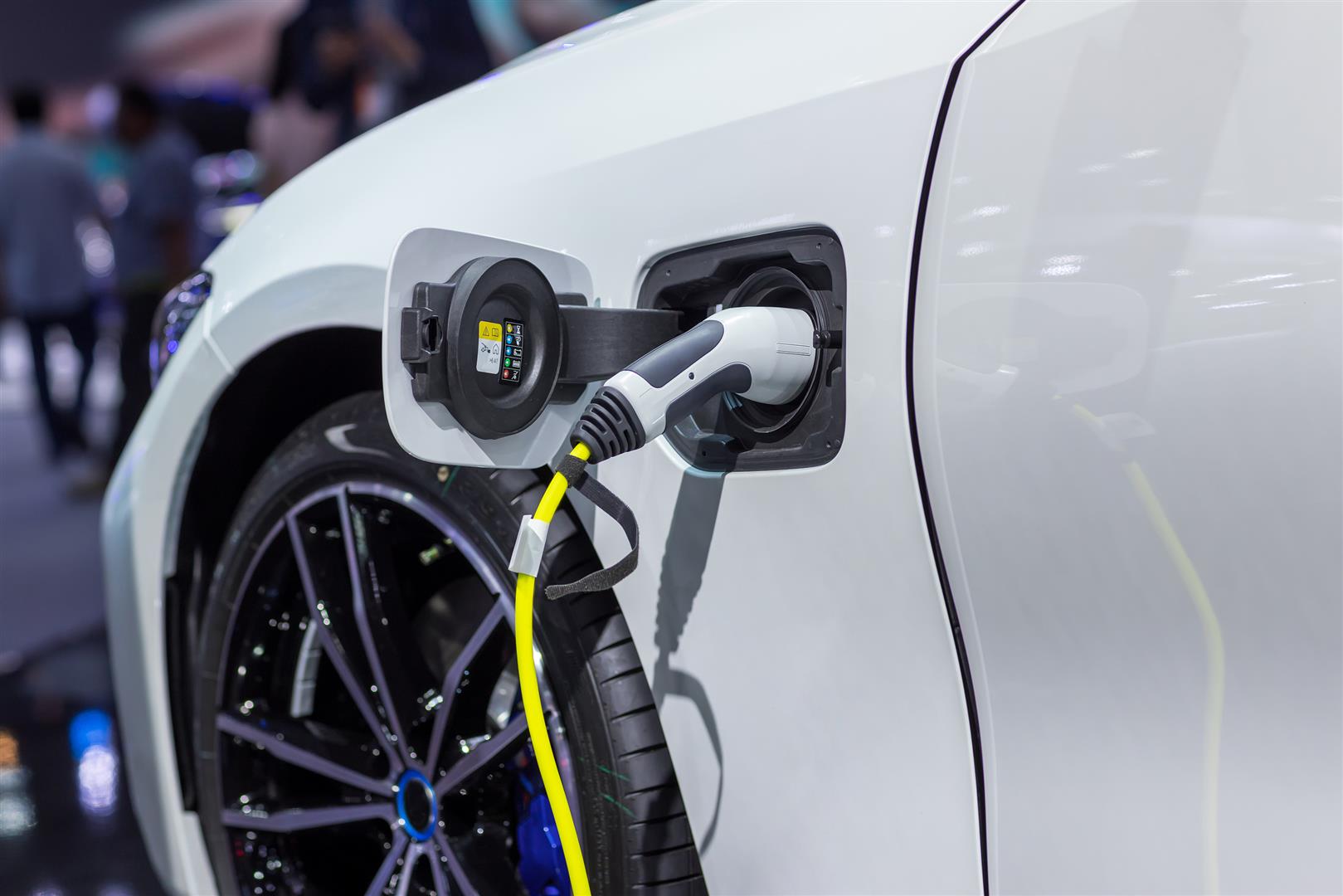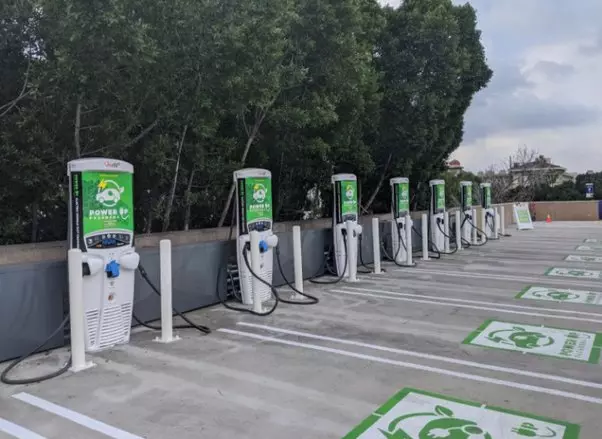The cost of an EV charging station franchise varies depending on the location and specific business situation. Profitability depends on factors such as location, service speed, and customer demand.
It can definitely be profitable, but specific costs and profit margins need thorough evaluation. Investing in charging stations involves expenses beyond just the equipment, such as installation, maintenance, and permits. Each charging station level has different installation requirements, which impact the overall cost.
Various companies offer franchise opportunities with different cost structures, and the profitability of an EV charging station depends on many variables that need careful consideration. It’s crucial to thoroughly research the costs and potential earnings before investing in an EV charging station franchise.

Credit: moranfamilyofbrands.com
Factors Affecting Ev Charging Station Franchise Cost
In considering the franchise cost for an EV charging station, several key factors come into play. Understanding these factors can help potential franchisees make informed decisions and plan for the financial investment required. Below are the primary considerations influencing the overall cost of establishing an EV charging station franchise.
Location
The location of the EV charging station is a significant determinant of the franchise cost. Urban areas or locations with high traffic and demand for electric vehicles tend to have higher franchise costs due to increased land prices and potential construction expenses.
Type Of Charging Stations
The type and number of charging stations also impact the franchise cost. Fast-charging stations typically require substantial investment compared to standard or slow-charging alternatives. Moreover, the number of stations needed to meet customer demand will affect the overall franchise expense.
Installation Expenses
Installation expenses encompass a range of costs, including electrical infrastructure upgrades, permits, and labor. The complexity of the installation process and any required modifications to the site influence the overall franchise cost. These expenses are crucial to consider when evaluating the total investment required.
Cost Breakdown Of Ev Charging Station Franchise
The cost breakdown of an EV charging station franchise can vary depending on factors such as location and specific business requirements. However, owning an EV charging station can be profitable as it is a service that drivers are willing to pay for, especially if it offers fast charging options.
Consider installation expenses, electrical upgrades, ongoing maintenance, permits, and licenses when investing in charging stations.
When considering investing in an EV charging station franchise, it is important to understand the cost breakdown and expenses involved. Here, we will break down the cost into three main categories:
1. Initial Franchise Fee
The initial franchise fee is the cost you pay to acquire the rights to operate an EV charging station franchise. This fee varies depending on the franchise brand and its reputation in the market. On average, the initial franchise fee for an EV charging station franchise ranges from $10,000 to $50,000.
2. Equipment Costs
Equipment costs include the expenses associated with purchasing and installing the necessary charging station equipment. These costs may vary based on factors such as the number of charging stations you plan to install and the charging speed you wish to offer. On average, the equipment costs for an EV charging station franchise can range from $20,000 to $100,000.
It is important to consider the quality and reliability of the charging station equipment you choose. Investing in high-quality equipment might incur a higher upfront cost, but it can ensure better performance and customer satisfaction in the long run.
3. Operational Expenses
Operational expenses are the ongoing costs of running your EV charging station franchise. These expenses include electricity bills, maintenance and repair costs, insurance, marketing fees, and employee salaries (if applicable). The exact amount of operational expenses will depend on factors such as the number of charging stations, the pricing structure you adopt, and the location of your franchise.
Here is a breakdown of some common operational expenses:
- Electricity Bills: Depending on the charging speed and number of charging sessions, electricity costs can vary. On average, monthly electricity bills for an EV charging station franchise can range from $500 to $2,000.
- Maintenance and Repair Costs: Regular maintenance and occasional repairs are necessary to ensure the smooth functioning of your charging stations. On average, annual maintenance and repair costs for an EV charging station franchise can range from $2,000 to $10,000.
- Insurance: It is important to have insurance coverage to protect your franchise from any potential liability. Insurance costs may vary based on factors such as the coverage amount and your franchise’s location.
- Marketing Fees: Allocating a budget for marketing and advertising activities can help promote your EV charging station franchise and attract more customers. Marketing fees can range from a few hundred dollars to a few thousand dollars per month.
- Employee Salaries: If you choose to have on-site staff to manage the charging stations or provide customer support, employee salaries should be factored into your operational expenses.
It is important to carefully consider all these costs and conduct thorough research before investing in an EV charging station franchise. Understanding the cost breakdown will help you make an informed decision and ensure the long-term profitability of your franchise.
Profitability Of Ev Charging Station Franchise
Are you considering investing in an EV charging station franchise? One of the key factors to consider before making a decision is the profitability of such a venture. In this section, we will explore the revenue potential of EV charging stations and the various factors that can impact profit margins.
Revenue Potential
EV charging stations have significant revenue potential, primarily due to the increasing demand for electric vehicles. As more and more drivers switch to electric cars, the demand for charging infrastructure continues to grow. Offering a reliable and convenient charging service for EV owners can attract a steady stream of customers and generate consistent revenue for your franchise.
The revenue potential of an EV charging station franchise depends on several factors, including:
- Location: The geographical location of your charging station can play a crucial role in determining the revenue potential. Areas with high electric vehicle adoption rates and limited charging infrastructure are more likely to attract a larger customer base.
- Charging Speed: Fast charging stations are in high demand as they allow EV owners to quickly recharge their vehicles while on the go. By offering fast charging options, you can potentially attract more customers and increase your revenue.
- Pricing Structure: Implementing a competitive and transparent pricing structure can help attract customers and maximize revenue. Offering different charging plans, such as pay-per-use or subscription-based models, can cater to the diverse needs of EV owners and generate additional income.
Factors Impacting Profit Margins
While EV charging stations can be profitable, it’s important to consider the factors that can impact profit margins. Here are some key factors to keep in mind:
- Initial Investment: The cost of setting up an EV charging station can vary depending on factors such as the number of charging units, the type of charging technology, and the installation requirements. The initial investment can impact your profit margins in the early stages of the business.
- Electricity Costs: The electricity consumed by EV charging stations is a significant expense that can affect profit margins. Finding ways to optimize energy usage and exploring renewable energy sources can help reduce these costs and improve profitability.
- Maintenance and Upkeep: Like any other business, EV charging stations require regular maintenance and upkeep. This includes maintaining the charging units, ensuring sufficient availability, and addressing any technical issues promptly. Allocating a budget for maintenance expenses is essential to ensure smooth operations and maintain profitability.
- Competition: The level of competition in your area can impact profit margins. If there are already established charging stations nearby, attracting customers may require additional marketing efforts or offering unique services to differentiate your franchise.
In conclusion, EV charging stations can be profitable, considering the increasing demand for electric vehicles. However, factors such as location, charging speed, pricing structure, initial investment, electricity costs, maintenance, and competition can impact profit margins. Conducting thorough research and careful planning can help maximize the profitability of your EV charging station franchise.

Credit: ussupercharge.com
Investing In Ev Charging Stations
Investing in an EV charging station franchise can be a lucrative opportunity. With the increasing demand for electric vehicles, the profitability of EV charging stations is evident. Factors such as location and business specifics can influence the cost and profit margin.
Consider the installation expenses, ongoing maintenance, and necessary permits when considering an investment in EV charging stations.
Investing in EV Charging Stations Are you considering venturing into the electric vehicle (EV) charging station business? As the demand for EVs continues to grow, investing in EV charging stations can be a lucrative opportunity. However, before delving into this venture, it’s crucial to consider various aspects beyond the equipment costs. Let’s explore the factors that go beyond the initial investment and the essential considerations to ponder before making this business decision. H3 headings:Beyond Equipment Costs
Installation Expenses: Beyond the cost of the charging equipment, installation expenses are a significant consideration. This includes site preparation, electrical wiring, and potential infrastructure upgrades which could vary based on location and local regulations. Maintenance: Ongoing maintenance is essential for the smooth operation of charging stations. Factoring in the costs for regular maintenance and repairs is crucial for long-term viability. Permits and Licenses: Obtaining applicable permits and licenses is imperative for compliance. The associated costs for acquiring these authorizations should not be overlooked.Considerations Before Investment
Location: Identifying the right location with high EV traffic is key to the success of a charging station franchise. Analyzing the accessibility and visibility of the site is paramount. Electricity Costs: Understanding the local electricity rates and utility requirements is essential for evaluating operating expenses and profit margins. Business Model: Having a clear business plan that outlines revenue streams, pricing strategies, and potential partnerships is critical for a sustainable and profitable EV charging station franchise. As you contemplate investing in an EV charging station franchise, it’s imperative to carefully assess both the initial and ongoing costs involved. Beyond equipment expenses, considerations such as installation, maintenance, permits, location, and electricity costs are vital in making an informed investment decision. By carefully evaluating these factors, potential investors can position themselves for success in this rapidly evolving industry.Case Studies And Examples
Exploring successful EV charging station franchises and notable cost analysis can provide valuable insights for potential investors. Let’s delve into real-world examples and examine the financial aspects of running an EV charging station franchise.
Successful Ev Charging Station Franchises
Several EV charging station franchises have thrived in the market, showcasing the profitability of this business model. Companies like US Supercharge, Beny New Energy, Moran Family of Brands, and Future Energy have established successful EV charging networks across different regions.
- US Supercharge offers comprehensive charging solutions, attracting a large customer base.
- Beny New Energy focuses on cost-effective EV charging solutions, appealing to budget-conscious consumers.
- Moran Family of Brands has built a reputation for quality service and reliability in the EV charging industry.
- Future Energy specializes in innovative charging technologies, catering to diverse business needs.
Notable Cost Analysis
Understanding the cost implications of setting up an EV charging station franchise is essential for making informed investment decisions. Factors such as equipment costs, installation expenses, maintenance fees, and operational overhead must be carefully evaluated to ensure financial sustainability.
| Cost Element | Details |
|---|---|
| Equipment Costs | Includes the purchase of charging units and related hardware. |
| Installation Expenses | Covers the costs of site preparation, electrical connections, and infrastructure upgrades. |
| Maintenance Fees | Encompasses regular upkeep, repairs, and servicing of charging equipment. |
| Operational Overhead | Includes utilities, insurance, licensing, and personnel expenses for day-to-day operations. |
By analyzing the cost components involved in running an EV charging station franchise, investors can plan their financial resources efficiently and enhance the profitability of their business.

Credit: www.beny.com
Future Trends And Opportunities
The future of EV charging station franchises presents exciting trends and opportunities for entrepreneurs looking to invest in sustainable technologies. As the shift towards electric vehicles accelerates, the demand for charging infrastructure is set to soar, opening up new avenues for growth and innovation.
Growth Prospects In The Ev Industry
With the rapid expansion of electric vehicles on the roads, the EV industry is poised for exponential growth, creating a lucrative market for EV charging station franchises.
Technological Innovations
Advancements in charging technology, such as fast-charging solutions and smart grid integration, are revolutionizing the EV charging experience and paving the way for enhanced convenience and efficiency.
Frequently Asked Questions
How Much Does An Ev Charging Station Franchise Cost?
An EV charging station franchise can cost varies. Factors like location, equipment, and services impact costs.
Is Owning An Ev Charging Station Profitable?
Yes, owning an EV charging station can be profitable as drivers are willing to pay for the service, especially fast charging. Profitability depends on your specific situation, location, and business model.
What Is The Profit Margin On Ev Chargers?
EV charging stations can be profitable, especially if they offer fast charging services. The profitability depends on various factors such as location and specific business details. However, it is a service that drivers are willing to pay for.
Can I Invest In Ev Charging Stations?
Investing in EV charging stations can be profitable, but it involves installation, permits, maintenance, and electrical upgrades. The profitability depends on location and business specifics. Each level of charging station has different installation requirements.
Conclusion
If you are considering franchising an EV charging station, you now have a clearer understanding of the potential costs and profits involved. It’s a promising and lucrative venture, with the profitability being location and situation-dependent. Understanding the investment requirements and profit margins can help you make an informed decision.
Consider all aspects before diving into this venture.



